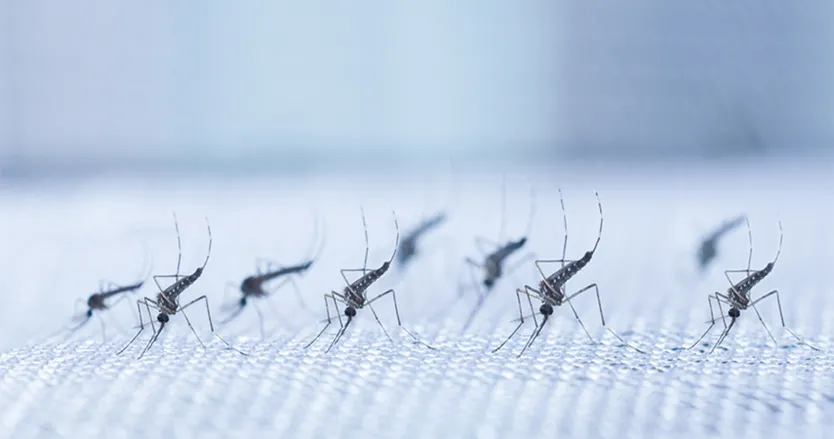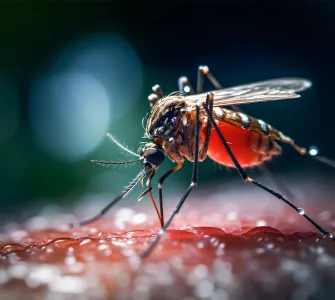Tackling dengue: Global efforts and persistent challenges


Dengue dilemmas: Why are current control measures falling short?
Dengue is an escalating global concern, posing a formidable challenge despite extensive investment in control measures. Over the past five decades, reported cases have surged 30-fold, signaling an urgent need for more sustainable strategies.1
Dengue is transmitted from one person to another by Aedes mosquitoes, and current dengue prevention strategies have mainly focussed on mosquito control.1,2 This strategy has worked in the past; mosquito control initiatives successfully reduced dengue infections around the world from the 1950s to the 1990s.1 However, these strategies have faltered in recent times, failing to prevent dengue outbreaks and expansion into new regions.1
But why is this?
Challenges in an evolving world
Rapid urbanization, with its associated factors such as population density, human mobility, and water storage practices, has fueled the rise in the number of cases of dengue and its spread.2,3 Traditional methods, including the use of insecticide sprays, can be challenging in large cities, for example, it may be difficult to quickly locate and communicate with affected households.1,4 Aside from urbanization, climate change has further extended the reach of mosquitoes, escalating the risk across wider areas.2
Insecticide dilemmas and the call for innovation
Reliance on synthetic insecticides faces hurdles like environmental impact, health concerns, and the emergence of insecticide-resistant mosquitoes. To overcome these challenges, there is a growing need for investment in new chemical classes of insecticides and alternative control methods, such as genetically engineered mosquitoes or biological control agents.1
Evidence-based decision making: A crucial factor
Some dengue control measures are chosen based on historical practices or political considerations rather than evidence of effectiveness. This approach can undermine the impact of interventions. Investing in research, monitoring, and evaluation is vital to identify efficient and evidence-based strategies for dengue control.1
Community engagement lacking
A community’s dengue risk depends on their knowledge, attitude and practice towards dengue, as well as the implementation of routine sustainable vector control activities.2 Failure of dengue mosquito control strategies have often been associated with the lack of active local community involvement.1 In some instances, local vector control initiatives also lack the funding and expertise needed to implement control measures in an effective and sustainable way.1 According to the WHO, mosquito control can be enhanced by educating and empowering communities to identify, empty, remove or treat mosquito aquatic habitats in and around their homes. Urban settings can also be made more resilient by “building out” Aedes mosquitoes, by providing reliable piped water supply to circumvent the storage of domestic water at the household level.5
No single measure enough to control the virus
Due to the complex way that dengue spreads – involving both the virus itself and the mosquitos that carry it – no single solution has been enough to control this disease.1 It is thought that using a combination of different initiatives together may have the greatest chance to achieve sustained dengue prevention.1 The use of multiple strategies for mosquito-borne disease prevention is the basis of WHO’s Global Vector Control Response (2017–2030) program, including those that transmit dengue.1,5
Conclusion: A holistic approach for effective control
Despite efforts to combat dengue using strategies that have been successful in the past, the virus continues to spread.2 The complex nature of dengue transmission, the lack of a single specific treatment, as well as the challenges posed by rapid urbanization and climate change may be contributing to the shortcomings of current control measures.1-3 To effectively address this public health challenge, a multifaceted approach involving community involvement, innovative control methods, and evidence-based interventions is crucial.1,5
If you are worried about dengue or healthcare-related questions, please contact your doctor or other healthcare professional promptly.
References
Achee, NL. et al. PLoS Negl Trop Dis. 2015;9(5): e0003655.
World Health Organization. Dengue and Severe Dengue. Available at: https://www.who.int/news-room/fact-sheets/detail/dengue-and-severe-dengue. Accessed January 2024.
Dengue Alliance. Lancet Glob Health. 2023;11(11):e1680-e1681.
Srichan P, et al. Int Health. 2018;10(5):349-355.
World Health Organization. Global vector control response 2017-2030. Available at: https://www.who.int/publications/i/item/9789241512978. Accessed November 2023.


























